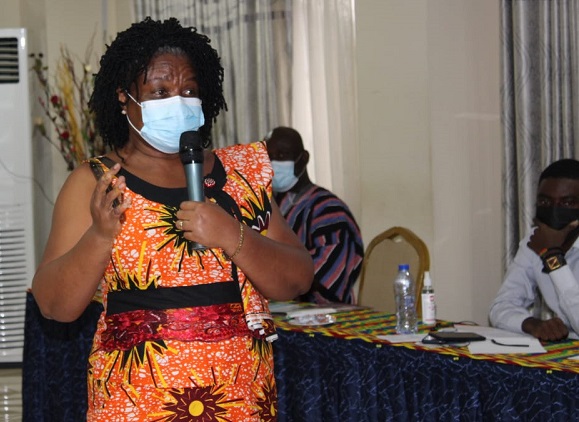Revise Minerals and Mining Act – WACAM appeals to government
mining sector’s contribution to Gross Domestic Product (GDP) have been hampered by Fiscal Frameworks under the Act, hence the need for an immediate revision to confront the challenges facing the extractive industry.

The Wassa Association of Communities Affected by Mining (WACAM) has appealed to government to revise the Minerals and Mining Act 2006, due to its gaps and weaknesses that have led to huge revenue losses to the state over the years.
According to Associate Executive Director of WACAM, Mrs Hannah Owusu-Koranteng, the Minerals and Mining Act 2006, Act 703 which replaced the Minerals and Mining Laws, 1986 (PNDCL 153) contains clauses that exempt mining companies and expatriates in the country from paying customs import duty on imported machinery which makes government lose significant revenues.
She explained that the import duty-free system granted by Minerals and Mining Act 2006, Act 703, contribute to losses of revenues that could have been used to service the port, and pay workers at the port who attend to the imported machineries for mining purposes.
She added that the mining sector’s contribution to Gross Domestic Product (GDP) have been hampered by Fiscal Frameworks under the Act, hence the need for an immediate revision to confront the challenges facing the extractive industry.
Specific sections
At a workshop held for journalists last Friday (August 13, 2021) in Koforidua, Mrs Owusu-Koranteng cited at least nine sections under the aforementioned Act, including “Section 3, 13, 17, 28, 29, 48, 49, 73(3), 75(1)” that were liabilities and massively destroying the sector both financially and environmentally, as well as contributing to human rights abuse due to its exploitative rights given to mining companies and individuals.
Citing Section 17 of Act 703, which states that subject to obtaining the requisite approvals or licences under the Water Resources Commission Act 1996 (Act 552), “a holder of a mineral right may, for purposes of or ancillary to the mineral operations, obtain, divert, impound, convey and use water from a river, stream, underground reservoir or watercourse within the land the subject of the mineral right”, she explained has been the legal basis for companies that have been mining along water bodies leading to their destruction in the country.
She added that the fiscal framework of the Act in Section 28, 29 and 30, has limited the revenue generation capacity of the state through several tax exemptions such as “customs import duty on machineries imported for mining purposes; the payment of income tax on furnished accommodation at the mine site; immigration quota in respect of the approved number of expatriate personnel; and personal remittance quota for expatriate personnel free from tax imposed by an enactment regulating the transfer of money out of the country”.
Other fiscal frameworks spelt under Act 703 contributing to loss of revenue include; “guarantee of free transferability of convertible currency earned by a mineral right holder; opening a foreign exchange retention account; and retention of not less than 25 percent of the foreign exchange earned”.
Recommendation
The Associate Executive Director of WACAM urged government to develop guidelines for “active participation of mining communities in the processes of review, formulating and development of the mining sector policies and legal framework”, which also considered transparency in the procedures leading to acquisition and grant of mineral rights at each stage of decision-making process.
This, she explained would eradicate the menace of mining companies in the extractive industry not duly informing host communities prior to their mining activities based on the principle known as “Free, Prior And Informed Consent” (FPIC); which has been one of the key gaps in the Minerals and Mining Act 2006, Act 703.
She added as a recommendation that government should ensure that the Policies and Legal Framework are protective of the state by making sure “the grant of exemptions to a holder of a mineral right found in Section 29 of Act 703, introduce as a condition precedent, that a mineral right holder can only enjoy the exemptions if it meets its social, environment and other obligations to mining communities” in order to protect the environment and the needs of host communities especially.


